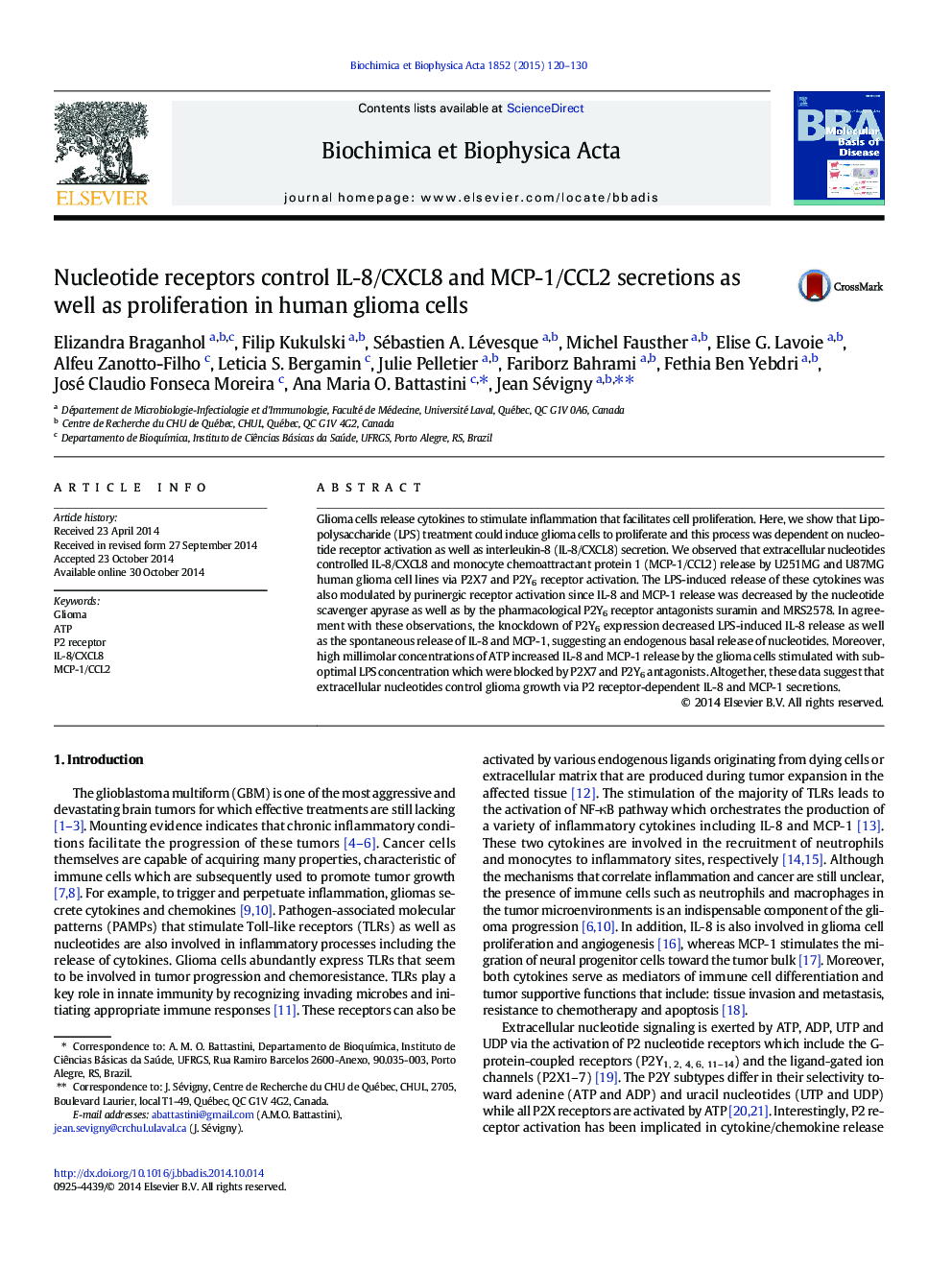| Article ID | Journal | Published Year | Pages | File Type |
|---|---|---|---|---|
| 1904679 | Biochimica et Biophysica Acta (BBA) - Molecular Basis of Disease | 2015 | 11 Pages |
•Nucleotides control glioma growth via P2R-dependent IL-8 secretion.•Extracellular nucleotides are necessary for IL-8 and MCP-1 secretion by glioma cells.•Extracellular nucleotides trigger basal and enhance TLR4-induced IL-8/MCP-1 release.•P2X7 and P2Y6 receptors participate in the IL-8 and MCP-1 secretion by glioma cells.
Glioma cells release cytokines to stimulate inflammation that facilitates cell proliferation. Here, we show that Lipopolysaccharide (LPS) treatment could induce glioma cells to proliferate and this process was dependent on nucleotide receptor activation as well as interleukin-8 (IL-8/CXCL8) secretion. We observed that extracellular nucleotides controlled IL-8/CXCL8 and monocyte chemoattractant protein 1 (MCP-1/CCL2) release by U251MG and U87MG human glioma cell lines via P2X7 and P2Y6 receptor activation. The LPS-induced release of these cytokines was also modulated by purinergic receptor activation since IL-8 and MCP-1 release was decreased by the nucleotide scavenger apyrase as well as by the pharmacological P2Y6 receptor antagonists suramin and MRS2578. In agreement with these observations, the knockdown of P2Y6 expression decreased LPS-induced IL-8 release as well as the spontaneous release of IL-8 and MCP-1, suggesting an endogenous basal release of nucleotides. Moreover, high millimolar concentrations of ATP increased IL-8 and MCP-1 release by the glioma cells stimulated with suboptimal LPS concentration which were blocked by P2X7 and P2Y6 antagonists. Altogether, these data suggest that extracellular nucleotides control glioma growth via P2 receptor-dependent IL-8 and MCP-1 secretions.
